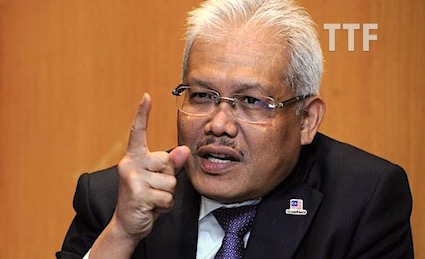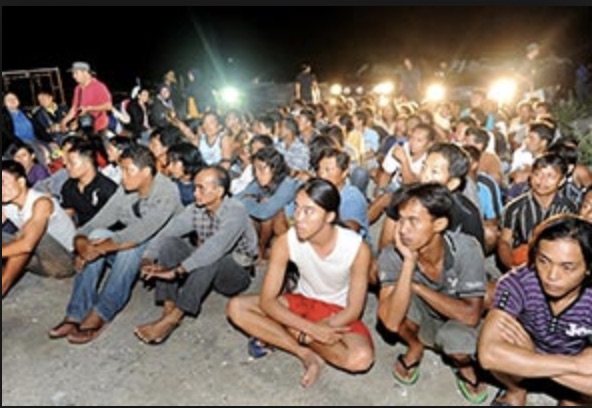Hamzah is right, a radical new approach is needed to tackle migrants in Malaysia

(New Malaysia Times) – Malaysia has always adopted a friendly and welcoming approach towards migrants and refugees fleeing their home countries, where it provided them with a safe space to recompose, reassess and reevaluate their lives.
But the reality is that Malaysia is faced with now is starkly different from what was envisioned when we first allowed migrant workers and refugees to come over in droves.
A World Bank report estimates that some 2.96 to 3.26 million migrant workers, including 1.23 to 1.46 million migrant workers in irregular situations, are residing in Malaysia.
The international refugee regime, under the UN High Commissioner for Refugees (UNHCR), although proven adept at providing life-saving assistance in response to emergencies has fallen short in terms of providing meaningful opportunities for the long-term displaced or even supporting the communities hosting them.

Compounding the economic and social challenges we already face today is the presence of countless undocumented migrants, hotbed for the spread of the deadly Covid-19, intermingling in society.
Home Minister Hamzah Zainuddin’s recent announcement that the authorities would launch a crackdown on undocumented migrants during this total lockdown period in order to inoculate them with Covid-19 vaccines is a much welcome measure.
Given that Malaysia is not a party to the 1951 Refugee Convention or the 1967 Protocol Relating to the Status of Refugees, Malaysia has no legal or administrative framework governing refugee status and rights in the country.
Deprived of the rights inherent in citizenship, these migrants potentially face decades of insecurity; insecurity that carries a burdensome toll on Malaysia and her people.
People’s Health Forum public health policy researcher Dr. Lim Chee Han recently claimed that “the immigration department does not have the capacity to arrest and repatriate the two to three million undocumented migrants who are in Malaysia.” How the good doctor arrived at such a conclusive statement is yet to be unsubstantiated.
However, acknowledgment is the first step towards any progress. In his own words, Malaysia currently plays host to approximately two to three million undocumented migrants.
The Malaysian government, in the current Covid-19 fuelled predicament, is solely responsible for the safety, security, and wellbeing of Malaysians.
Our borders have to be sealed and externalized, so those would-be asylum seekers are prevented from claiming asylum on arrival and instead, must apply in their home country, where each application is rigorously evaluated and acceptance made on a case by case basis.
Alternatively, Malaysia can play a proactive role and model our approach after the recently adopted legislation in Denmark, enabling it to open asylum centers outside Malaysia where applicants would be sent to live.

Malaysia can facilitate the movements of migrants and refugees and asylum seekers to a third country, where if an application is approved, he or she would be given the right to live in the host country. Malaysia itself can no longer afford to have a few million foreigners putting an immense strain on its resources.
Hamzah added that the current proof of identification held by asylum seekers was issued by the United Nations High Commission for Refugees (UNHCR).
“I don’t want to blame them (the UNHCR), which has issued 120,000 cards to refugees and asylum seekers in the country. Come to think of it, shouldn’t the cards be issued by the authorities here?
“It is as though the cards issued by a third party are worth more than the documents issued by the National Registration Department”, he said.
Hamzah said some have been staying in the country for up to 30 years despite having refugee status, adding that such categories of refugees or asylum seekers were supposed to be placed in the country temporarily before they were placed for resettlement.

